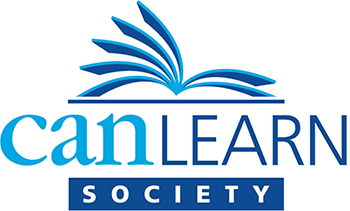By Krista Forand, M.Ed.
Parents often ask me for strategies to help their children with emotional regulation. One of the best strategies that I can suggest is to develop and model your own emotional regulation strategies and encourage supportive conversations about emotions among all family members. Parents play a critical role in teaching their children how to express their feelings or emotions, respond to others’ emotions, and manage their emotions in different situations. As adults, we may take for granted how influential our behaviour is on children, but it is essential to understand that it starts with us.
If you’ve ever been a passenger on an airplane, you’ve likely heard the flight attendant’s speech about what to do in an emergency. If the cabin air pressure decreases and the oxygen masks are deployed, we are supposed to put our oxygen mask on first and then assist our child. However, this doesn’t feel intuitive to most parents, because when they see their child in trouble, they want to help them immediately. But if you fail to put your mask on first, you may not have the strength or ability to help your child. This also stands true for helping children develop their skills to deal with strong emotions.
Research has shown that children imitate and internalize ways of managing their emotions by observing their parents and other significant adults in their lives. Children learn to gauge how to express emotion and whether their feelings are valid by how adults respond when they are upset, frustrated, or sad. Studies have found that unsupportive reactions to children’s negative emotions were associated with poorer emotion regulation. Additionally, studies had shown that when parents worked with their child to use helpful coping strategies (e.g., distraction, changing their perspective about the situation), the child expressed less anger and sadness.
The message here is that we, as adults need to make sure that we’re putting on our oxygen mask first and then helping our children. How can we do this? A few questions can get us thinking about our emotional regulation abilities and whether we are positive role models for our children:
- Do you have a habit of dismissing emotions or accepting and validating them?
- How do you handle anger? How do you express your negative emotions in front of others? What about in front of your child? Are you able to follow the axiom “use your words,” in the same way you expect from your child? Are you able to notice when you are becoming upset and use a strategy to avoid going completely over the emotional edge?
- What creative ideas can you come up with at the moment to help your child think differently about an upsetting situation?
- Consider the overall messages you want to teach your child about expressing emotions, understanding emotions in others and managing emotions in stressful situations.
Being more mindful of our emotional regulation habits and strategies (positive or negative) and figuring out whether we need to make some changes for the better is a great first step in helping children develop good emotional regulation skills. Overall, the more we are in tune with how we respond to stressful situations, the more in tune we can be for our children. Talking about and learning strategies together can also be an excellent way to increase communication and positivity in family relationships.
If you are looking for a way to facilitate these conversations with your child, CanLearn Society provides a four-week self-regulation for children 8 – 11 and their parents to learn ways to identify emotions, deal with intense emotions and problem solve in tricky situations. Registration is now open. Visit our website for more information on Calm Kids, Happy Families.
Krista Forand, M.Ed.
Krista has worked in various roles with the CanLearn Society (formerly Calgary Learning Centre) since 2009. She is currently working with the clinical team as a registered provisional psychologist, providing assessments and group interventions for individuals with learning and attention difficulties. In 2014, Krista obtained her graduate degree from the University of Calgary where she cultivated her interest in learning disabilities and attention disorders. She believes in the therapeutic effect of psychoeducational assessment and how this process can empower individuals and families to take control of their lives, by understanding their unique way of being in the world.
Research references:
Gottman, J.M., Katz, L.F., & Hooven, C. (1996). Parental meta-emotion philosophy and the emotional life of families: Theoretical models and preliminary data. Journal of Family Psychology, 10, 243–268. doi:10.1037/0893-3200.10.3.243
Morris, A.S., Morris, M.D.S., Silk, J.S., & Steinberg, L. (2011). The influence of mother-child emotion regulation strategies on children’s expression of anger and sadness. Developmental Psychology, 47(1), 213-225. doi: 10.1037/a0021021
Morris, A.S., Silk, J.S., Steinberg, L., Myers, S.S., & Robinson, L.R. (2007). The role of the family context in the development of emotion regulation. Social Development, 16, 361–388. doi: 10.1111/j.1467-9507.2007.00389.x
Shaffer, A., Suveg, C., Thomassin, K., & Bradbury, L.L. (2012). Emotion socialization in the context of family risks: Links to child emotion regulation. Journal of Child and Family Studies, 21, 917-924. doi: 10.1007/s10826-011-9551-3
